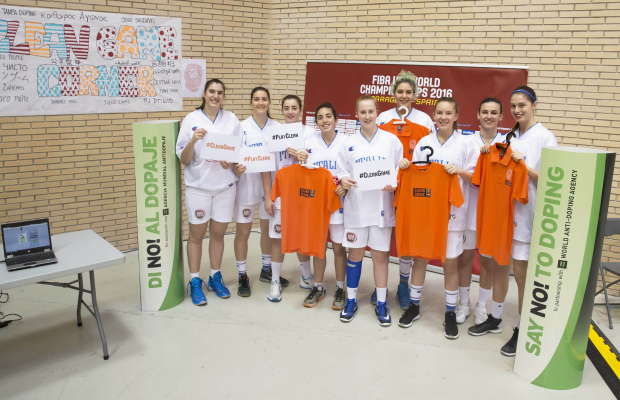Competing on an even playing field where hard work, training, and talent are the fundamental difference between winning and losing, holds a central place within the sporting ethos. The practice of trying to gain an unfair advantage through dishonest means is as old as sport itself, and FIBA takes its anti-doping activities seriously. But, even those who have no intention to cheat in basketball, still need to be extremely mindful that many substances they take for medical or training purposes – both in the on and off season – may result in serious consequences under the anti-doping rules if they turn out to be prohibited.
Use FIBA as your primary resource for all information related to anti-doping policies. Violating anti-doping requirements can have major consequences for your career and you want to make sure that products you consume innocently do not contain substances you didn’t know were prohibited by FIBA and the World Anti-Doping Code. While your team, coaches, and the team doctor will help you stay current on anti-doping information, you can always turn to FIBA. Keep in mind however, that you, as a player, are fully responsible for knowing the rules.
Doping is defined by the World Anti-Doping Agency (WADA) as the occurrence of one or more of the following anti-doping rule violation:
- Presence of a prohibited substance in a player’s sample
- Use or attempted use of a prohibited substance or method
- Evading, refusing or failing to submit to sample collection after being notified
- Failure to file player whereabouts information and missed tests
- Tampering or attempted tampering with any part of the doping control process
- Possession of a prohibited substance or method
- Trafficking a prohibited substance of method
- Administering or attempting to administer a prohibited substance or method to a player
- Complicity in an ADRV (Anti-Doping Rule Violation)
- Prohibited association with player support personnel with a doping history
- Acts to discourage or retaliate against reporting to authorities
WADA keeps a list of substances and methods that are banned. It updates this List of Prohibited Substances & Methods periodically, and at least annually. The updated list normally applies from 1 January each year and is available a few months before on the WADA website.
Important! The WADA Prohibited List is complex and difficult to understand so check everything through your team doctor and check the substances on all drugs, supplements, herbal products, etc. before you take them.
